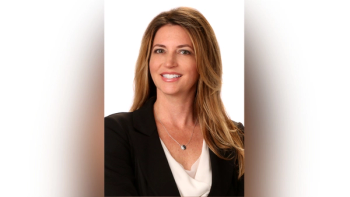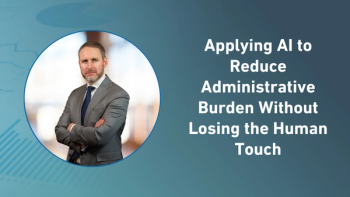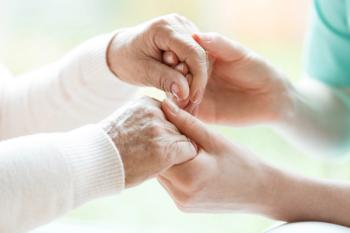
Engaging Minorities is All About Trust in Clinical Trials
In this interview, Patrice Matchaba, MD, President of Novartis US Foundation discusses how the biopharmaceutical industry can regain the trust of minorities.
Minority patients are not participating in clinical trials because they do not trust the medical community, and FDA has noted the lack of diversity and inclusion of patients in clinical trials. In this interview, Patrice Matchaba, MD, President of Novartis US Foundation, created The Beacon of Hope, the first Clinical Trial Center of Excellence focusing on building bridges between clinical trials and minority communities, will discuss how the biopharmaceutical industry can regain the trust of minorities.
Moe Alsumidaie: What is the Beacon of Hope and the purpose of this initiative? And what does Novartis hope to accomplish with it?
Patrice Matchaba: That question probably is the most critical as it relates to this vital initiative. You may recall that during the COVID-19 pandemic, the discussion centered on Black and Brown communities not wanting to participate in vaccine trials—and this became a discussion even among the FDA, which noted the lack of diversity and inclusion of patients.
And then the second thing was the impact of COVID-19 on the hospitalization and death rates of African Americans, Hispanics, and other communities. At the time, many rushed to issue press releases saying they encourage patients and embrace diversity and inclusion, which is the right thing to do because we need to know the natural causes of why these patients are not participating in clinical trials.
And as you know, trust is a big issue. The lack of trust in research and development and the US healthcare system has much to do with communities of color not trusting the medical community, and justifiably so.
First, we decided to consult with the communities we want to help increase diversity and inclusion. We engaged with the deans and presidents of the 26 Historically Black Colleges and Universities (HBCUs), including the Thurgood Marshall College Fund, the National Medical Association, and President Valerie Montgomery Rice of Morehouse School of Medicine. Yes, patients are not participating. Yes, there is a trust issue. And then, as you dig a little deeper, we realize that there are no investigators from the community working on these clinical trials.
As you know, the more complex the studies in terms of radioligands or cancers with gene therapy, you find zero investigators of color. So, if you have a trust situation and don't have the proper investigators to conduct the clinical trials, how will you increase the number of participating minority patients?
Second, the impact of hospitalization and death rates became clear to us that we haven't just aggregated the social causes of the increased morbidity and mortality versus the biological factors, and there is an assumption that race is the crucial factor when it's probably more social.
We met with our partners, stakeholders, and community leaders throughout the last year, and after four months of ongoing discussions, we were able to announce the Beacon of Hope, which is a collaboration and the first-ever Clinical Trial Center of Excellence at Morehouse School of Medicine.
Insight was simple: it all centers on STEM education. Even in high school, kids drop out, so very few get into colleges and study STEM. College fees in the US are costly, as you know, so students of color often don't have enough money to study long courses.
The first thing we learned was even the brightest kids from the African American and Hispanic communities—when they finish their pharmacy, nursing, or medical studies –don't stay at the universities and engage in clinical trials because they have to go back home and work and support their families. And that’s very unfortunate because the HBCU medical schools and universities don't have the same endowments as Harvard or MIT. Therefore, they can't do clinical trials in a sustained manner. And that’s why we included the funding of HBCU scholarships as part of this initiative—a total of 360 over ten years.
MA: How does the Beacon of Hope prepare investigators for entering the field of clinical trials?
PM: So, when we looked at the four medical schools, their experience performing clinical trials was quite different. Howard is the only historically black medical school with its hospital, so they do a lot of clinical trials. Morehouse School of Medicine is also more advanced. But when you look at Charles Drew Medical School and Meharry Medical College, they will need more support in the future than Howard and Morehouse.
What we did with Morehouse was we presented our portfolio from proof of concept to the next ten years and said: “choose the disease areas that have the highest impact in your community in Atlanta.” As a result, the first Clinical Trial Center of Excellence at Morehouse is operational. It will initiate its first study on a clinical trial evaluating a cholesterol management pathway in patients who have also experienced a recent acute coronary syndrome event. And they are currently evaluating cardiovascular, breast, and prostate cancer trials and will soon begin to consider Merck and Sanofi clinical trials.
MA: And over time, I'm assuming they would start as sub-investigator or principal investigators to gain that experience?
PM: Because these are primarily new clinical trials, many of them will be sub-investigators, and the goal is that they will learn from more experienced clinical investigators. But the intention is that, over time, we want to see these investigators conducting clinical trials on more prevalent diseases among populations of color. For example, lupus nephritis is a kidney disorder that is a complication of lupus that can be very serious and is almost 30 - 40% more prevalent in females with African origins. There's another condition called hidradenitis, a condition that causes small, painful lumps form under your armpits, particularly under the skin. This condition almost exclusively impacts females and African Americans.
The principal investigators are the ones doing the clinical work based in the community, particularly given the time it takes to carry out these trials, which may be 10 to 15 years or more. Additionally, we want to build a much more diverse database of investigators in the future. And for this, we are enlisting the help of the National Medical Association, representing more than 70,000 African American and Hispanic doctors.
MA: What kinds of clinical trials do you anticipate will be conducted to expose these investigators to the focus areas of the Centers of Excellence, and why is that beneficial to the African American community?
PM: Regarding clinical trials, the more complicated the trial in terms of technology, gene therapies, cell therapies, the innovative RNA messenger vaccines—the more reason for these clinical investigators to be heavily involved in these new technologies as they learn more about the specific conditions that disproportionately impact the African American community. I go back to what I said before regarding trust being a considerable component of this endeavor. You need to integrate those new technology trials into these communities, and it must be with trusted people and investigators who look like them and are embraced by these communities.
MA: What impact do you anticipate this initiative will have on other pharmaceutical companies?
PM: We are thrilled to have these companies bringing their diverse portfolios, different technologies, and added scalability to the Clinical Centers of Excellence while making them more sustainable. I want to be clear that this is not just about Novartis. We’ve already been approached by several other companies leading up to the Beacon of Hope expansion announcement. Big ones and even small companies bring their unique expertise and experiences to this project, making it more diverse.
You may recall that FDA guidance on underrepresented racial and ethnic populations in clinical trials was released in April. Now, suddenly, there's pressure to say we need to find new centers and patients, and the smallest companies will struggle to compete for patients. We, at Beacon of Hope, welcome these small biotech companies and say, you come in and create the operational and intellectual capacity and conduct these clinical trials right here in our Centers of Excellence.
MA: What changes would you like to see for Beacon of Hope in the next five years?
PM: Well, the simple one is what everyone is currently talking about: being more representative of the diversity and increasing diversity in clinical trials. But we also want to improve the number of investigators of color, male and female, from all races and ethnicities. The number one lesson I learned the most was the use of race data in diagnosis and algorithms and the New England Journal of Medicine published on that. If you remember, during COVID, the pulse oximeters overestimated Black and Brown patients' oxygenation. Because in the calibration, Black and Brown patients were not included as part of original trials and testing.Now there are another 16 diagnostic areas that include race for treatment, and that's why we've created another Center of Excellence to begin reviewing the use of race and data in medicine over the last 200 years. That will be the most significant impact, and then by creating trust among minority communities, they will begin to trust our healthcare system and embrace innovation.This will prove valuable the next time we face another pandemic.
MA: What advantages does Beacon of Hope offer to the minority community compared to DCT companies?
PM: We will announce a technology company joining the Beacon of Hope as our technology partner. Decentralized trials are essential. But there is no point in having the technology if you don't have the trust factor. Without trust, we will not be allowed to enter these vital communities. That's the COVID lesson, which we cannot forget. The technology exists, as you know. But without the trust, you must involve African American stakeholders and influencers, such as churches, barbershops, and community leaders. Then they will allow you to start collecting data and taking samples at home; trust is the main currency here.
Newsletter
Stay current in clinical research with Applied Clinical Trials, providing expert insights, regulatory updates, and practical strategies for successful clinical trial design and execution.




